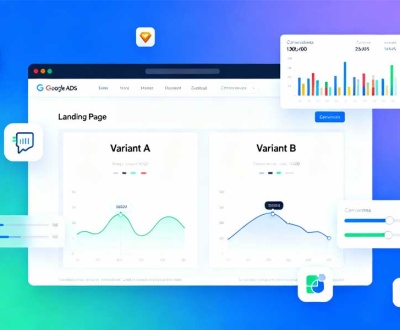Outsourcing Website Development: A Comprehensive Guide
- September 20, 2024
- Web Development

In today's fast-paced digital world, having an effective online presence is crucial for businesses of all sizes. Website development has become an essential part of this strategy, but many organizations face challenges when it comes to in-house development. Outsourcing website development has emerged as a viable solution, allowing companies to harness external expertise and resources. This guide explores the reasons to outsource web development, the types of outsourcing, best practices, challenges, and tips for success.
Why Outsource Website Development?
Cost Efficiency
One of the primary reasons for outsourcing website development is cost efficiency. Developing a website in-house often requires substantial investment in technology, tools, and skilled personnel. Hiring full-time developers can be expensive, especially for small to medium-sized businesses. By outsourcing, companies can access a global pool of talent and choose vendors that offer competitive pricing.
Access to Expertise
Outsourcing allows organizations to tap into a wealth of expertise that may not be available internally. Many development agencies and freelancers specialize in various aspects of website development, including UI/UX design, front-end and back-end development, SEO, and digital marketing. Collaborating with professionals who are up-to-date with industry trends can lead to a superior product.
Focus on Core Business Functions
Outsourcing website development enables businesses to concentrate on their core competencies instead of spreading resources thin. By delegating technical tasks, companies can focus on strategic initiatives, such as market expansion, customer engagement, and product development. This shift in focus often leads to increased productivity and improved overall performance.
Faster Project Completion
Outsourcing can accelerate the website development process. By leveraging the resources and expertise of an external team, companies can often complete projects more quickly than if handled internally. This speed can be especially beneficial for businesses aiming to launch or update their online presence in a competitive market.
Types of Outsourcing Models
Development Agencies
Development agencies provide a more comprehensive range of services, often employing teams of experts for various aspects of website development. They can handle complex projects and create tailored solutions for businesses. While their services may come at a higher price point than freelancers, clients often benefit from the agency's established processes and project management capabilities.
Offshore Development
Offshore outsourcing involves hiring teams from countries with lower labor costs, allowing businesses to save significantly on development expenses. While this model can lead to budget-friendly results, it may also present challenges related to time zone differences, language barriers, and potential quality concerns. Establishing clear communication and expectations is crucial for successful offshore collaboration.
Nearshore Development
Nearshore outsourcing refers to partnering with teams from neighboring countries, often in similar time zones. This model can alleviate some challenges associated with offshore outsourcing, such as communication issues. It also allows for more significant cultural alignment and smoother collaboration.
Best Practices for Outsourcing Website Development
Define Clear Objectives
Before beginning the outsourcing process, it's essential to define clear project objectives. Outline scope, desired functionalities, timelines, and key performance indicators (KPIs). Establishing a well-defined project brief ensures that all stakeholders are aligned and expectations are set from the outset, forming the foundation for successful collaboration.
Research and Select the Right Partner
Take the time to research potential development partners, whether they’re freelancers or agencies. Review portfolios showcasing their previous work, read client testimonials, and assess their technical expertise. During interviews, ask questions about their development processes, project management tools, and communication practices. Ensuring a good cultural fit is equally essential for a successful partnership.
Foster Effective Communication
Communication is key when it comes to outsourcing projects. Establish a communication plan that outlines preferred communication channels, frequency of updates, and points of contact on both sides. Tools like Slack or Trello can facilitate real-time collaboration and keep everyone informed about project progress.
Utilize Project Management Tools
Investing in project management tools can streamline collaboration between teams. Platforms like Asana, Jira, and Basecamp enable task assignment, deadline tracking, and documentation sharing, helping everyone stay organized and accountable. Regular check-ins and updates ensure that project milestones are met.
Establish a Robust Feedback Loop
Encourage an ongoing feedback loop throughout the project’s lifecycle. Regular reviews allow stakeholders to assess the quality of work, address concerns, and make adjustments if necessary. Be specific in your feedback to help the development team understand your expectations clearly.
Contact us
Contact us to discuss your Website Development requirement. Get in touch with us by sending a message through our contact form and we will reply back ASAP. We can discuss how we can strategically offer Website Development services for your organization.
GET A QUOTE











